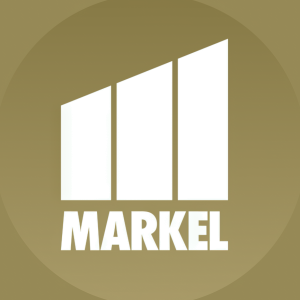86% of Shoppers Ditch Name Brands for Private Label as Prices Climb, RDSolutions Survey Finds
- 86% of consumers are adopting private label products, indicating strong market acceptance
- 75% of private label buyers rate store brands as equal or superior to national brands
- 65% of consumers are influenced by promotions, showing effective marketing potential
- 62% of shoppers would switch stores due to high prices, indicating low customer loyalty
- 20% of consumers are skipping certain items altogether, suggesting reduced consumer spending
- 84% of shoppers attribute rising food prices to economic conditions, showing widespread price sensitivity
New data shows consumers increasingly switching stores, brands, and buying habits amid inflation and tariff concerns
Conducted in May 2025 among 250 verified
87% rated price a 6 or higher on a 10-point scale when deciding where to shop44% rated it a 9 or 1062% of shoppers said they would switch stores if they perceived prices to be too high
"These findings highlight just how central price has become to shopper loyalty—both to retailers and brands," said Lee Kallman, Chief Commercial Officer at RDSolutions. "Economic headwinds like inflation and tariffs are accelerating changes in consumer behavior. Retailers and manufacturers who don't respond quickly risk losing share."
Private Label on the Rise
In addition to changing stores, shoppers are shifting what they buy:
42% opt for cheaper alternatives when prices rise20% skip certain items altogether- Only
11% stick to their usual brands regardless of price
More than
Value and Perception Drivers
When asked what defines a "good value" for a food item, shoppers cited:
- Price compared to other similar products –
36.8% - Size or quantity –
27.6% - Brand reputation –
12.8% - Discount offers –
10.8% - Organic/natural vs. conventional –
10%
Further supporting the value-conscious mindset,
Notably,
RDSolutions Webinar & Industry Comparison
These findings were discussed during the recent webinar "Shoppers' Perceptual Filters and Their Effect on Food Pricing," hosted by RDSolutions and moderated by retail analyst Phil Lempert. The session featured RDSolutions CEO Jake Blondin and CCO Lee Kallman and is available for replay at https://rdsolutions.io/event/shoppers-perceptual-filters-and-their-effect-on-food-pricing/.
Methodology
This report is based on a national survey conducted by RDSolutions in April 2025. It includes responses from 250 verified
Explore the Full Survey Findings
To see all the data highlights from the 2025 shopper survey—including consumer price sensitivity, store-switching behavior, and private label insights—download the full report.
About RDSolutions
RDSolutions is a leading retail intelligence and execution partner helping brands and retailers turn data into real-world action. With over 35 years of experience and a nationwide team of full-time field reps, RDSolutions delivers measurable results across pricing, availability, product launches, and competitive tracking. Headquartered in
Learn more at RDSolutions.io.
Media Contact:
Courtney Cook
Director of Marketing
Courtney.Cook@rdsolutions.io
![]() View original content to download multimedia:https://www.prnewswire.com/news-releases/86-of-shoppers-ditch-name-brands-for-private-label-as-prices-climb-rdsolutions-survey-finds-302483499.html
View original content to download multimedia:https://www.prnewswire.com/news-releases/86-of-shoppers-ditch-name-brands-for-private-label-as-prices-climb-rdsolutions-survey-finds-302483499.html
SOURCE RDSolutions








